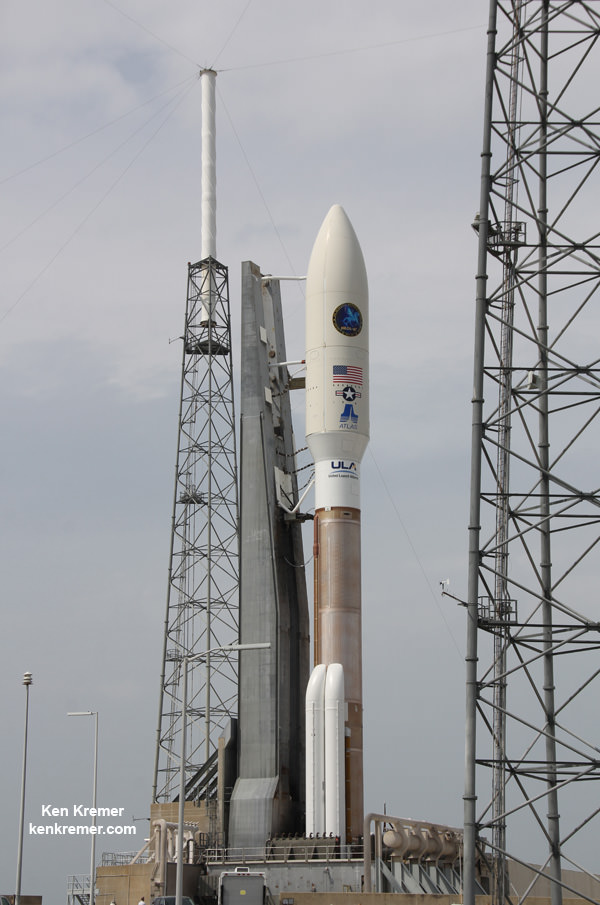
United Launch Alliance (ULA) has decided to skip the bidding competition for launch of the next generation U.S. Air Force GPS military navigation satellites, a company spokesperson confirmed to Universe Today, meaning that rival SpaceX is set to win its first military launch contract as the only other certified contract contender.
Since bids for the new GPS launch contract – which were the first to be opened by the military to a competitive bidding process since 2006 – were due on Monday, Nov. 16, the door has opened for SpaceX to apparently prevail with the launch services contract, by default, since they are the only other American company certified to launch U.S. Air Force military satellites.
Until May of this year, ULA had a near sole source contract with the USAF to launch the nation’s most critical and highly valuable national security satellites, until new space upstart SpaceX – founded by CEO Elon Musk – was also certified by the Air Force to launch our most sensitive military payloads with their Falcon 9 booster.
“ULA wants nothing more than to compete, but unfortunately we are unable to submit a compliant bid for GPS III-X launch services,” ULA spokeswoman Jessica Rye told Universe Today.
ULA cited the lack of availability of “any Atlas engines available to bid” and other contract factors as the reason for not submitting a bid for the 2018 launch based on the request for proposals (RFP) for the global positioning satellite, said Rye in the new ULA statement.
The U.S. Congress enacted a ban in 2014 severely curtailing importation of the Russian-made RD-180 engines that power the Atlas first stage, after Russia’s invasion and annexation of the Crimea in the spring of 2014 raised the ire of many members of Congress.
ULA CEO Tory Bruno told reporters at an Oct. 2 media briefing, that the firm required a waiver from the congressional RD-180 legislative restrictions to import more engines. Otherwise ULA would be unable to submit a launch services bid for the GPS using the Atlas V rocket.
“Without those engines, we are unable to fly Atlas in the national security marketplace,” Bruno stated. “That would take the workhorse of what has put two thirds of the nation’s most critical capabilities into orbit out of that market, and really almost kill competition before it’s had a chance to get started because I can’t compete if I can’t bring a rocket into the marketplace, and a rocket has to have an engine. I have four and I need more than four to sustain that.”
Soon thereafter, Defense Secretary Ashton Carter subsequently declined ULA’s request for a waiver.
“Under the restrictions imposed by the 2015 National Defense Authorization Act (NDAA), ULA does not currently have any Atlas engines available to bid and therefore is unable to submit a timely proposal,” according to the ULA statement.
So the fallout from the Congressional engine prohibition now is that SpaceX apparently wins the launch contract for the first GPS III-X satellite by default.
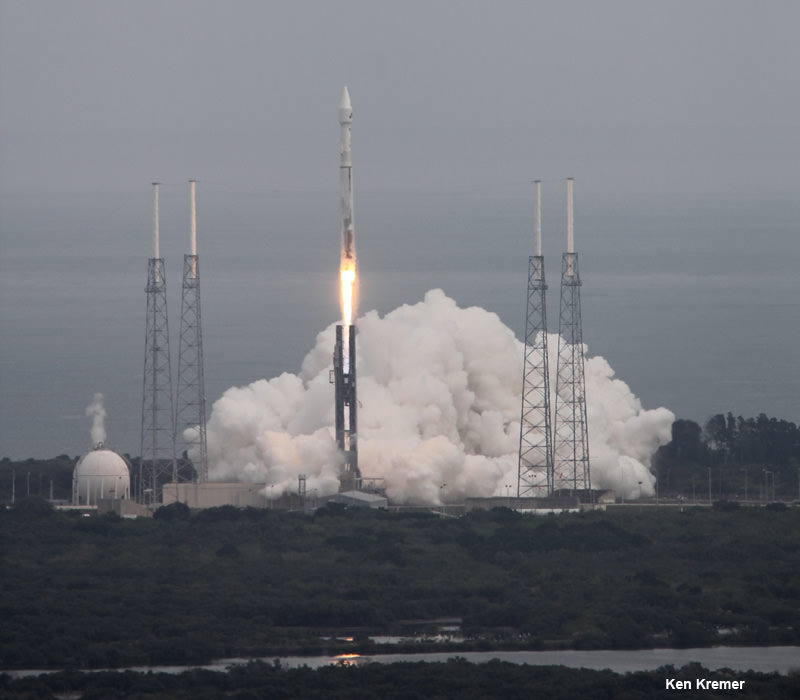
ULA was formed in 2006 as a 50:50 joint venture between Lockheed Martin and Boeing that combined their existing expendable rocket fleet families – the Atlas V and Delta IV – under one roof.
ULA enjoys a 100% success rate for its string of all 103 launches by both the Atlas and Delta rockets for military, NASA, government and commercial customers since 2006.
The SpaceX Falcon 9 had a perfect record of 17 successful launches until the recent catastrophic launch failure of the Falcon 9/Dragon CRS-7 cargo mission on June 28, 2015 to the ISS for NASA.
All Falcon 9 launches have been grounded since the June 28 launch mishap. SpaceX said it hopes to resume launches as soon as December, but no specific target date has been announced.
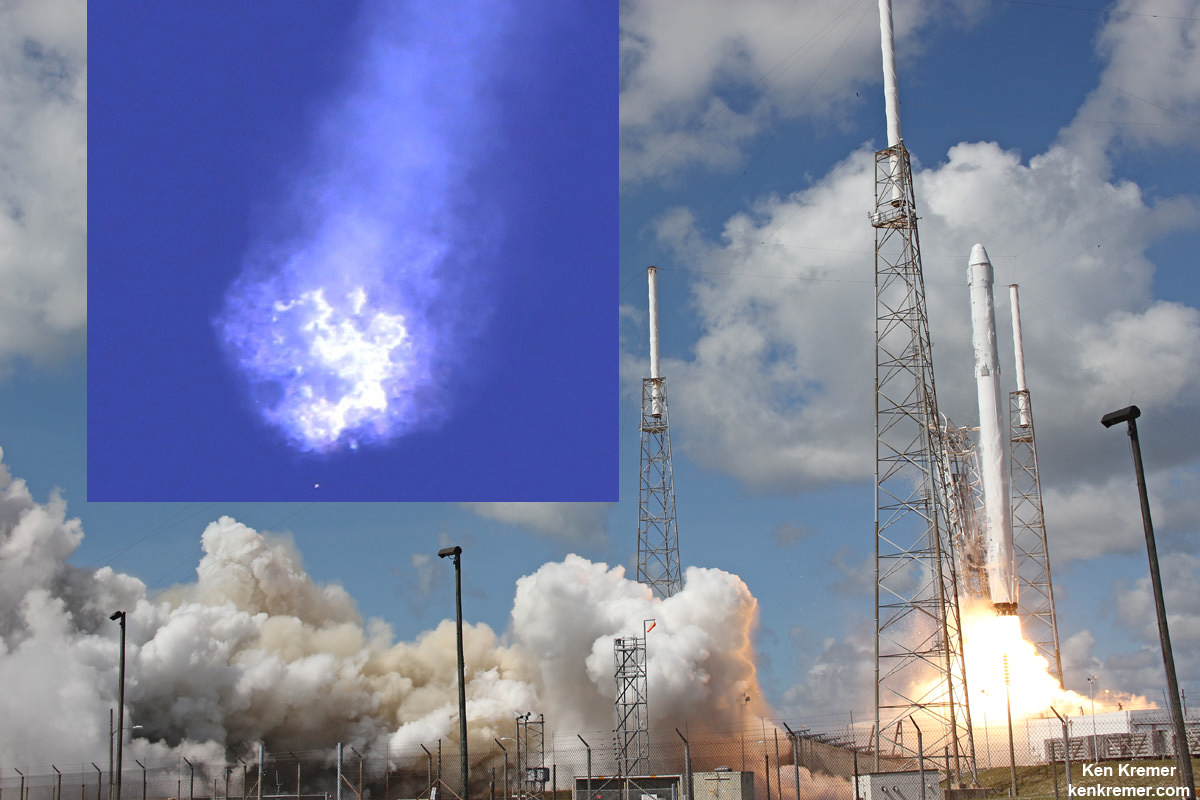
The Air Force’s goal in approving the SpaceX Falcon 9 booster was aimed at drastically cutting the high cost of access to space by introducing competition in the awarding of military mission launch contacts.
ULA also noted a number of other factors such as accounting practices and the RFP’s Lowest Price Technically Acceptable (LPTA) structure in declining to compete for GPS III-X.
“The RFP requires ULA to certify that funds from other government contracts will not benefit the GPS III launch mission. ULA does not have the accounting systems in place to make that certification, and therefore cannot submit a compliant proposal.”
“In addition, the RFP’s Lowest Price Technically Acceptable (LPTA) structure allows for no ability to differentiate between competitors on the basis of critical factors such as reliability, schedule certainty, technical capability and past performance.”
Nevertheless ULA hopes to submit bids on other upcoming lucrative Air Force launch contracts. A total of nine USAF launches will be put up for competitive bids, including six GPS-3 satellites.
“ULA remains fully committed to supporting America’s national security missions with world-class launch services. We look forward to working with the Air Force to address the obstacles to ULA’s participation in future launch competitions to enable a full and fair competition.”
Furthermore, in response to competitive pressures from SpaceX and the end of their near launch monopoly in USAF launches, ULA took concrete steps earlier this year to dramatically cut launch costs and end dependency on the RD-180s when Bruno announced in April 2015 that the company would develop the new all-American made Vulcan rocket.
Vulcan is ULA’s next generation rocket to space that can propel payloads to low Earth orbit as well as throughout the solar system – including Pluto. It is slated for an inaugural liftoff in 2019.
The Vulcan will replace the Atlas V and Delta IV and use American made engines sourced from either Blue Origin or Aerojet Rocketdyne.
The key selling point of Vulcan is that it will be an all American built rocket and it will dramatically reduce launch costs to compete toe to toe with the SpaceX Falcon rocket family.
“To be successful and survive ULA needs to transform to be more of a competitive company in a competitive environment,” ULA VP Dr. George Sowers told Universe Today in a wide ranging interview regarding the rationale and goals of the Vulcan rocket.
The U.S. Force will be placing other military launch contract out for bid soon.
As of today only ULA and SpaceX are certified military launch providers.
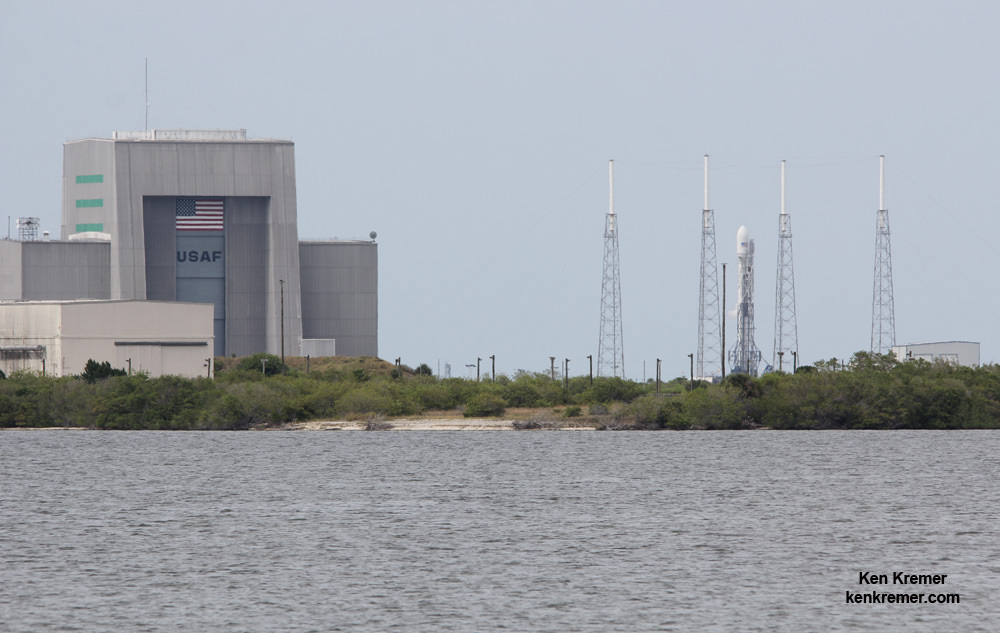
The RD-180 congressional engine ban only pertains to military launches. ULA is allowed to import the engines for NASA and commercial launches of the Atlas V.
ULA has launched a slew of Atlas Vs this year already, including three in October alone from both US coasts. One of those launches was ULA’s milestone 100th launch and another was a current generation GPS satellite.
Therefore ULA’s inventory of RD-180s has been significantly reduced.
In the absence of a waiver of the RD-180 ban, ULA will not be able to compete for future military launches. In that case ULA likely won’t have sufficient funds to complete the Vulcan rocket development.
The consequence of all this is that SpaceX may gain a new launch monopoly on national security military payloads, defeating the stated USAF purpose of opening its launches to competition.

The next Atlas V launch is set for Dec. 3 on the Orbital ATK Cygnus OA-4 cargo resupply mission to the ISS. Watch for my on site reports from the Kennedy Space Center.
Stay tuned here for Ken’s continuing Earth and planetary science and human spaceflight news.
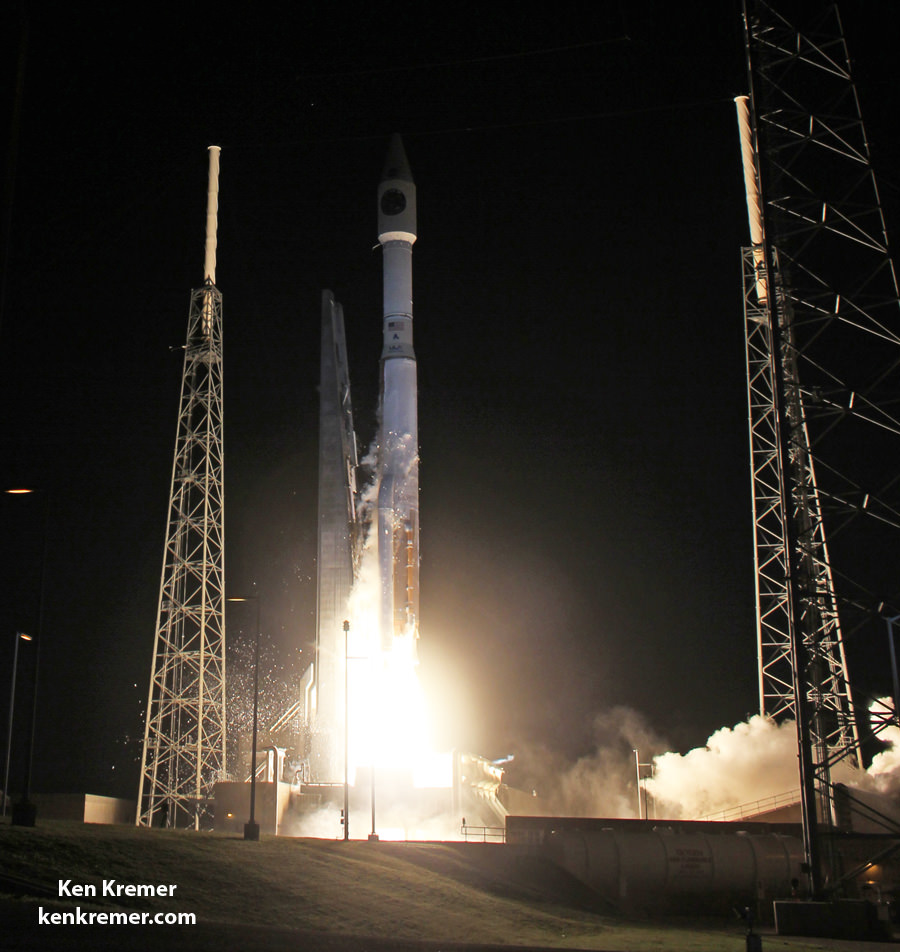

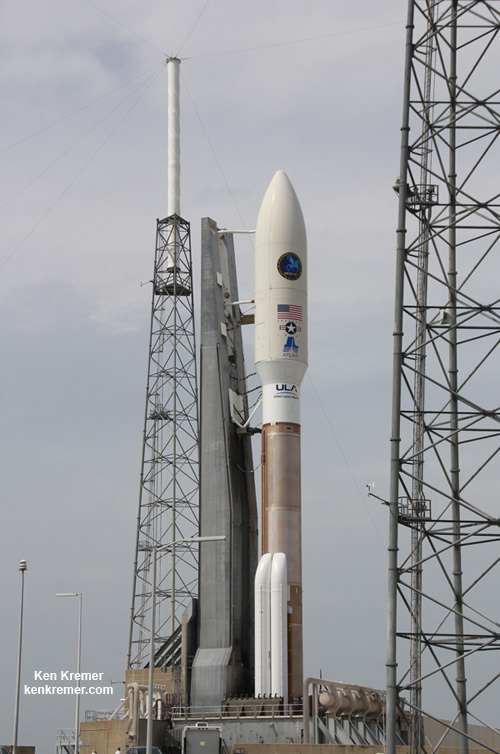
So ULA is basically saying “we can’t compete with SpaceX, so we’re not even going to try”? This is supposed to be a winning corporate strategy?
I think it’s more that ULA’s Russian-made rug was pulled out from under them with the ban on importation of RD-180 engines and their use for military launches. ULA wouldn’t be able to design/build/test/produce an American engine in time to meet Air Force launch requirements. There really wasn’t much else they could do but to let SpaceX have the contract.
You’re right, of course. Do you know why they didn’t make a bid based on a Delta IV, which uses no Russian engines?
Sounds like ULA was caught sleeping.
…but ya’ gotta’ admit, the politics behind all this is fascinating!